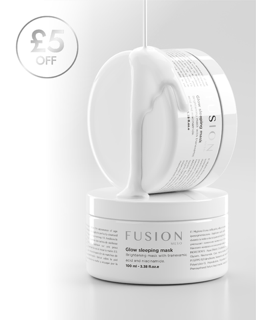Mushrooms in skincare
- marielarkin15
- Oct 27, 2022
- 2 min read
Updated: Feb 29, 2024
From the kitchen to the powder room and beyond, mushrooms have been all the rage in recent years. Using mushroom extracts in skin care is not a novel discovery; however, it has been particularly buzzy as of late.
One type of mushroom receiving extra love: tremella, more commonly referred to as snow mushroom.
The tremella mushroom
This jelly, white and yellow mushroom, called yiner or baimuer in Chinese, has a rich history of medicinal purposes, both in edible and topical forms. The snow mushroom specifically has been used to promote longevity in China and other East Asian countries for many years.
In culinary practice, these mushrooms can be used to thicken any dish, thanks to their ultra-gelatinous texture. A few popular recipes include snow mushroom soup and mushroom stir-fry, but these shrooms can be steamed, tossed in any salad, and even used for potent extracts of antioxidant power.
Benefits of using snow mushrooms in skin care.
Mushrooms have many amazing benefits for the skin. Mushroom extract is classified as a humectant which means it pulls water into the skin - similar to the function of hyaluronic acid.
Snow mushrooms in particular contain polysaccharides (aka plant sugars) that coat the skin in a thin film. This film binds to skin cells and also binds to water, which brings hydration into the skin. This is why you should apply humectants like this one to damp skin.
Beyond a plumping hydration boost, "The polysaccharides found in snow mushrooms have antioxidant, anti-inflammatory, and anti-radiation properties. Snow mushrooms also contain kojic acid, a natural and gentle acid that helps brighten the complexion and fight dark spots by inhibiting melanin synthesis.
But snow mushrooms aren't the only skin-loving shroom out there. In fact, shiitake mushrooms are an equally beneficial fungi. Similar to the snow mushroom, it is a potent source of kojic acid and therefore acts as a brightener. It also boasts stellar antioxidant, anti-inflammatory, and hydrating properties.



Comments